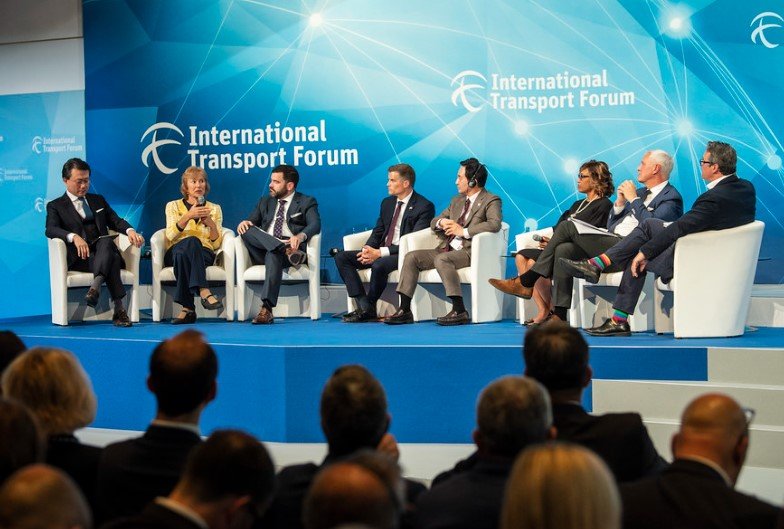The ITS World Congress 2025 kicked off in Atlanta on August 24, bringing together global leaders in intelligent transportation systems for sessions, exhibits, and hands-on experiences. A key highlight on the first day was a series of off-site Tech Tours that showcased real-world innovations in traffic management and connected vehicle technology across the greater Atlanta area.
This event at the Georgia World Congress Center runs through August 28 and draws thousands of experts, policymakers, and industry pros to explore the future of mobility. With nearly 800 speakers and hundreds of exhibitors, it focuses on advancing safe, efficient, and sustainable transportation solutions amid growing urban challenges.
Event Overview and Key Attractions
The congress opened with a packed Sunday schedule of conference sessions, setting the stage for deeper discussions on topics like smart cities and vehicle connectivity. Attendees from around the world arrived eager to see how technology can solve real problems in transportation.
Organizers emphasized the role of Atlanta as a hub for innovation, with its mix of urban growth and tech advancements. The event ties into broader trends, such as the push for connected vehicles that reduce accidents and improve traffic flow in busy cities.
This year’s gathering builds on past congresses, like the one in Los Angeles in 2022, but shifts focus to practical demos in live settings. It aligns with recent U.S. Department of Transportation initiatives aiming to cut road fatalities by 20 percent through tech by 2030.

Spotlight on Tech Tours
One standout Tech Tour took visitors to the iATL lab in Alpharetta, about 30 minutes from Atlanta. This private-sector facility, powered by Applied Information, serves as a testing ground for connected vehicle technologies.
The tour gave participants a close look at how these systems work in everyday scenarios. It highlighted Georgia’s leadership in transportation tech, with visits to sites like the Atlanta Braves stadium traffic center and Curiosity Lab in Peachtree Corners.
These tours offer more than talks; they provide direct interaction with tools that could change how we drive and manage roads. With urban congestion rising, such innovations promise to save time and lives.
Experts note that connected vehicles could prevent up to 80 percent of non-impaired crashes, based on recent studies from the National Highway Traffic Safety Administration.
Innovations at iATL Lab
Bryan Mulligan, CEO of Applied Information, and Alpharetta Mayor Jim Gilvin opened the iATL tour. They shared how the lab has helped emergency services save over 10,000 seconds on roads in the past year.
Inside, attendees saw live views of city infrastructure, including traffic signals and school zone beacons. They watched buses get signal priority on routes and tracked emergency vehicle preemptions in real time.
The lab works with every type of traffic signal controller used in North America. It integrates detectors like radar, lidar, and AI-powered cameras to test solutions.
This setup allows for safe experimentation before wide deployment, addressing issues like pedestrian safety and red light violations.
A working lab area displayed artificial intelligence applications that analyze traffic patterns and predict issues.
Real-World Demonstrations and Tech Highlights
On-road demos featured a Tesla Cybertruck testing connected vehicle apps. Participants experienced alerts for school zones, buses, work trucks, pedestrians, red light running, and green light timing.
These features aim to make driving safer and smoother. For instance, “get ready for green” notifications help reduce idling and emissions.
Here are some key technologies demonstrated:
- School zone safety alerts to warn drivers near schools.
- Pedestrian in crosswalk warnings to prevent accidents.
- Emergency vehicle preemption for faster response times.
- Transit signal priority to keep public transport on schedule.
Such demos show how connected vehicles communicate with infrastructure, a concept gaining traction worldwide.
The tour also connected to broader efforts, like Europe’s C-ITS platform, which has similar goals for vehicle-to-everything communication.
Impact on Future Transportation
These innovations could transform daily commutes and city planning. By integrating AI and connectivity, systems like those at iATL reduce congestion and enhance safety.
In Atlanta, where traffic ranks among the worst in the U.S., such tech is vital. Recent data shows the city loses over 90 hours per driver yearly to jams, per INRIX reports.
Looking ahead, the congress will feature more sessions on scaling these technologies. Monday’s opening ceremony and exhibition promise even more insights.
Experts predict that by 2030, connected vehicles could add $1.5 trillion to the global economy through efficiency gains.
| Feature | Description | Benefit |
|---|---|---|
| Traffic Signal Priority | Gives buses and emergency vehicles green lights automatically | Cuts response times by up to 20 percent |
| School Zone Alerts | Warns drivers of active school areas | Reduces speeding incidents near schools |
| Pedestrian Detection | Uses sensors to spot people in crosswalks | Lowers accident rates by alerting vehicles |
| AI Traffic Analysis | Monitors patterns with cameras and radar | Predicts and prevents congestion buildup |
| Green Light Notifications | Tells drivers when lights will change | Improves fuel efficiency and flow |
This table outlines core elements from the iATL demos, showing their practical value.
The ITS World Congress continues to bridge ideas and action, pushing for smarter roads everywhere.
Share your thoughts on these tech tours in the comments below, and spread the word by sharing this article with fellow transportation enthusiasts.






